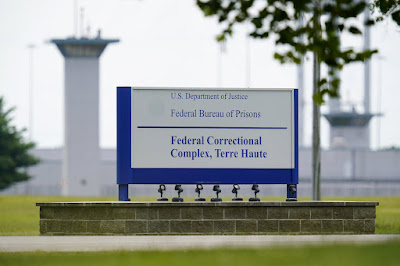 |
| Hank Skinner |
Hank Skinner is in the final round of a fight against two heavyweights. One is the Texas lawmen who want him executed. The other is an often-fatal ailment that saps his strength and leaves him in constant pain. The odds makers give him little chance. Death, after all, is undefeated.
But Skinner, 51, is not about to throw in the towel. He is sustained by the love of his wife, Sandrine, and his daughter, Natalie. And, he is buoyed by the latest findings in his case, which support his steadfast contention for two decades -- that he is an innocent man.
It all began with a bloodbath on New Year's Eve in 1993. That is when Skinner's live-in girlfriend, Twila Busby, and her two adult sons were stabbed to death in their Panhandle home. Skinner was physically present at the time of the slayings and naturally became the prime suspect.
Local law enforcement scoffed at Skinner's claim that he was unconscious on the living room couch from drinking a vodka cocktail laced with codeine and anti-anxiety meds. They doubted he suddenly awoke to find the trio dead or dying, then stumbled to a neighbor's house for help. If that were true, why would the neighbor say that Skinner ordered her not to call the cops?
Believing from the start that Skinner was the killer, the cops failed to investigate alternative suspect Robert Donnell, Twila's uncle (now deceased). Donnell had molested her in the past, frightened her with crude sexual advances at a New Year's Eve party less than an hour before the murders and vanished after she headed home. He was next seen scrubbing his pick-up truck from top to bottom on a frigid New Year's Day.
The jury did not hear much of the exculpatory evidence. Convinced of Skinner's guilt by his presence at the scene and the neighbor's testimony, jurors unanimously recommended death. A Panhandle judge obliged them in 1995.
Five years passed before Northwestern University journalism students began looking into the case. They interviewed the neighbor, who said she was coerced into falsely testifying against Skinner, adding that he had mumbled incoherently and was barely able to walk. (A toxicology report later revealed that Skinner was likely semi-comatose and lacked the agility to kill three able-bodied adults.)
They also interviewed a man who saw Skinner passed out on the couch before the party.
Another neighbor, Deborah Ellis, told the students that Donnell, the uncle, had regularly worn a jacket that was strikingly similar to one found next to Twila's lifeless body. The jacket was covered with blood and hairs, ripe for DNA testing. So were hairs found clutched in Twila's hand. And, in a death row interview, Skinner said he wanted modern forensic tests conducted.
When the new evidence and Skinner's call for DNA were made public in 2000, the D.A. promised testing. But he reneged when the results began trickling in. Three items, including bloodied gauze found just outside the Busby home, excluded Skinner. There would be no more tests, the D.A. and his successors announced.
Skinner's lawyers unsuccessfully fought the no-test policy through the Texas and federal courts. Running out of appeals, they asked the Supreme Court to take the case. On March 24, 2010, Skinner was served the customary last meal next to the Texas death chamber. With less than an hour to spare, the high court finally weighed in. The justices ordered a stay of execution.
In a landmark decision the next year, the court ruled that Skinner was entitled under federal civil rights law to have access to the biological evidence in his case. It seemed the truth would finally be known. But the Texas Attorney General stubbornly refused to produce the evidence. By this time, Hank Skinner had been on death row for 16 years.
The A.G. relented only after a public tongue-lashing by the Texas Court of Criminal Appeals in 2012. At that point, the reason for the twelve years of stonewalling became apparent. The jacket found next to Twila's body? The single most important piece of physical evidence in the case? It had vanished. Poof! "Somehow or another...no one's ever been able to find that thing," shrugged the lawman in charge of storing evidence.
But the hairs in Twila's hand had been preserved, and last month the results came back. They were a revelation. Three of the hairs genetically ruled out Skinner. More significant, they were microscopically different from the three victims' hair -- but belonged to the maternal side of their family. Since Robert Donnell was Twila's mother's brother, the hairs were genetically consistent with his DNA.
Will Skinner's lawyers ask a judge to exhume Donnell's body? Perhaps, though the next logical step is a hearing on the new DNA tests, which the Texas A.G. still says point to Skinner's guilt. (In a statement, a spokesman for the A.G. said the three hairs must have come from the victims, even though a state lab ruled out this possibility.)
Source: Huffington Post, Sept. 10, 2013
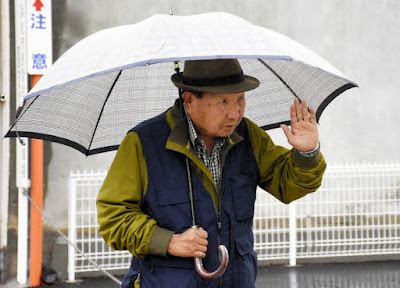


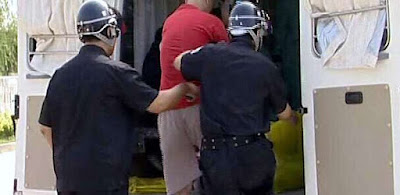
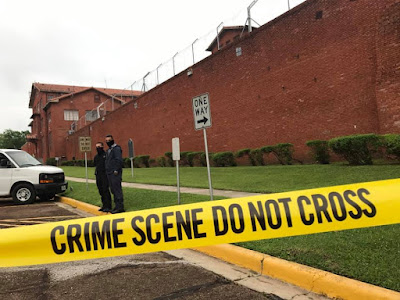


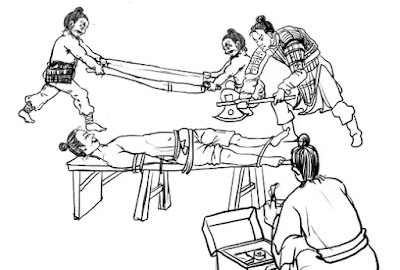

.jpg)
